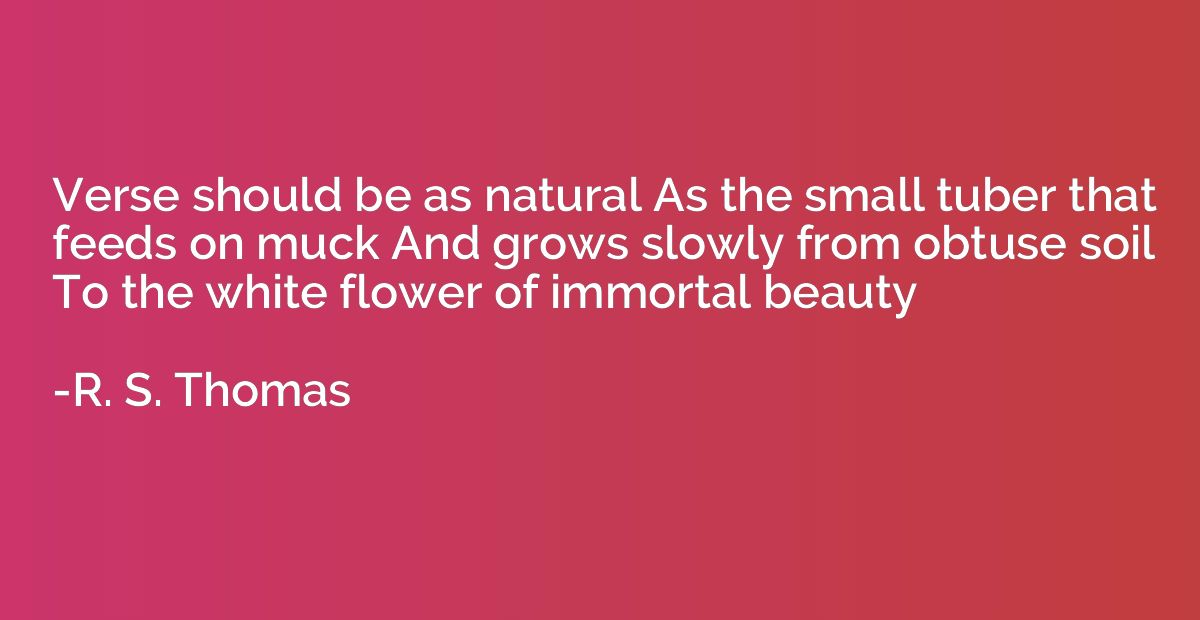Quote by R. S. Thomas
Verse should be as natural As the small tuber that feeds on muck And grows slowly from obtuse soil To the white flower of immortal beauty

Summary
This quote emphasizes the beauty and simplicity found in nature and suggests that poetry should reflect this naturalness. It compares verse to a small tuber, a humble and unintelligent root, highlighting the idea that poetry should emerge naturally from less refined origins. The image of the tuber growing slowly from "obtuse soil" to a pristine, white flower symbolizes the transformation of raw material into something transcendent and immortal. In essence, the quote suggests that true poetry is rooted in the ordinary but has the potential to yield extraordinary and everlasting beauty.
Topics
Beauty
By R. S. Thomas














